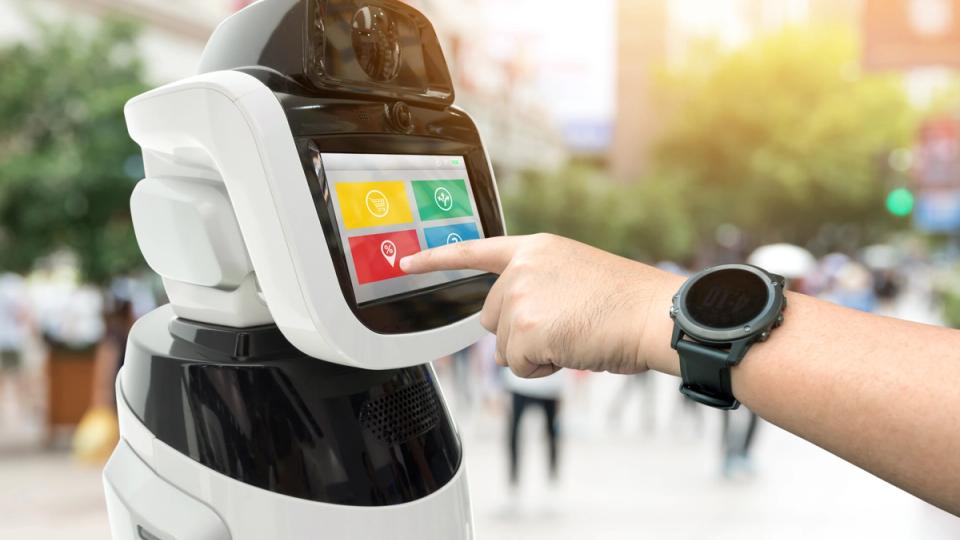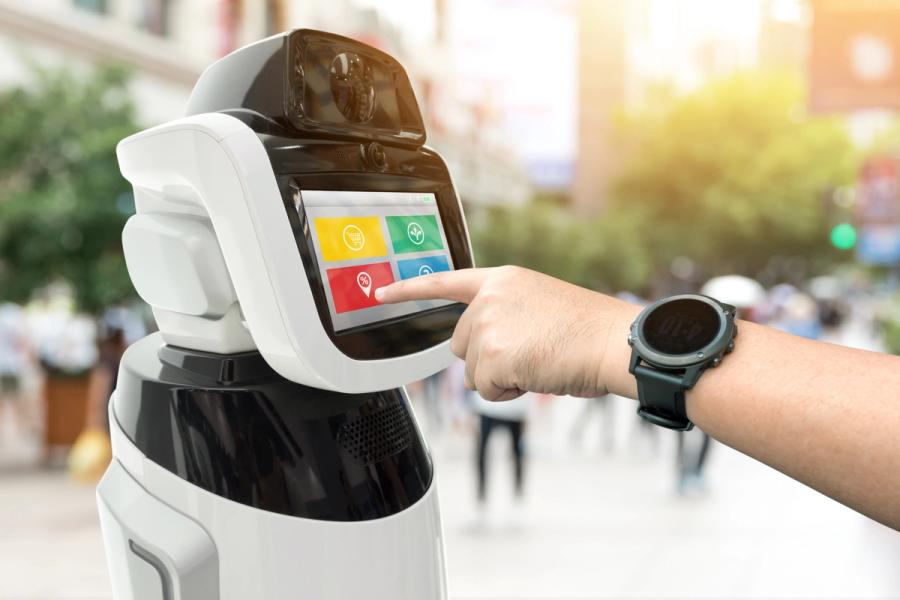Human after all? The impact of digital technology on sales jobs and skills
Impact. Is this word too strong? Or maybe not the right one to describe the upheaval now affecting the labour market?

For many sales professionals, the mention of concepts such as big data, marketing automation or artificial intelligence is a source of stress and even fear for the future of their jobs or profession: “Am I going to be replaced with a robot or an algorithm in the near future? “
Spoiler alert: the answer is “no, not immediately, and not everyone”. If you want to know more about the future of sales jobs in a 100% digital world, then read on!
Actually, it’s the customers that have changed.
If you believe the salesforce of tomorrow are going to be replaced with robots able to prospect, identify leads and write a business proposition faster and more efficiently than the most experienced salesperson, you are mistaken.
The first revolution is taking place upstream, at customer level. Both B2B and B2C customers are increasingly well-informed and wised up. Through the internet and social media, they have access to reviews, demonstration videos, and informative articles, and can even request an offer in a few clicks.
It has been estimated that by the time they make a decision to buy the customer has already gone through 70% of the decision-making process. For instance, by the time they get in touch with a car dealership, over 70% of customers know more than the salesperson about the competing models, their prices and their engines.
Google has even conceptualised this change, calling it ZMOT (‘Zero Moment Of Truth’) between the time we find out about a product’s existence (through an ad, a recommendation, etc.) and the time we actually make the purchase. We have got into the habit of seeking out and collecting large quantities of information that will inevitably influence our decision.
In the old days, things were definitely simpler. A customer would receive a ‘stimulus’ and contact the company, and the salesperson’s job was to clinch the sale by relying on their knowledge of the product, which was far more extensive than the customer’s. Today, therefore, thanks to – or due to – the new technologies, customers are more independent, unconstrained and demanding.
So which are the jobs that will disappear in the wake of tech?
Just as the internal combustion engine replaced animal traction, technological progress is continuing its implacable advance. This is also commonly known as ‘progress’.
In his reference work, Les robots, mon emploi et moi (‘Robots, my Job and Me’), researcher Erwann Tison has performed a tentative analysis by classifying jobs in four categories: jobs that will be replaced with robots, jobs that will face competition from AI, jobs that will be enhanced by the new technologies and those that will be protected from the effects of the revolution.
The author adds: “Sales jobs are somewhere between Categories 2 and 3. Salespersons who simply repeat the characteristics of a product without taking the time to understand the customer will just as simply be replaced by a chatbot or customer-interaction software. “
Obvious, right? Another study by Frey and Osborne estimates that salespersons with roles such as helpdesk agents or telemarketers are 99.99% sure of being replaced with software.
When performing simple, recurring tasks, machines perform just as well and can ‘sell’ as well as a human being. Do these studies herald the end of sales functions?
Not in the least! Dear salespersons, do not fear: you hold most of the trump cards you need to take advantage of the tech invasion.
Digitising the sales function
Companies and good salespersons need to anticipate future changes so as not to let themselves be overtaken.
In the case of sales processes, tech opens up new opportunities to attract, identify and convert leads to prospects to customers at minimum expense to the company. To approach a customer, you no longer send them an offer, but attract them to an exclusive, customised, high-added-value offer.
AI and big data have introduced new forms of pre-sales interaction, tools for analysing prospect and customer data, that open up sales opportunities and productivity gains.
This is known as ‘enhanced sales’: the use of tech to better map, target, use selling points and sell. It is no coincidence that more and more data analysts are being included in sales teams to develop data-storytelling and social-selling tools.
A few pointers concerning tech
The digitisation of the workplace has a twofold effect on knowledge: it makes it accessible very quickly and renders it obsolete just as fast. Just like the article you are reading.
The best advice to a salesperson keen to understand the impact of tech on their job is to keep a close watch on technologies such as AI or big data. Our advantage compared with last decade is that people can learn about many subjects continuously, at their own pace and at home. The winners of this fourth industrial revolution will be those who keep moving by acquiring new skills over time and realise that other skills are no longer relevant.
Conclusion
Tech provides major opportunities for the development of sales functions. New markets, the ability to interact remotely with customers, behavioural analysis by means of AI, development of loyalty systems… the list of potential opportunities is a long one! And long live our salesforce!
Our latest articles

Jobboards : the end of the dinosaurs?
Bad times for job boards. Online recruitment platforms are experiencing a decline in popularity and effectiveness and are increasingly becoming the dinosaur of recruitment tools.

Human after all? The impact of digital technology on sales jobs and skills
Impact. Is this word too strong? Or maybe not the right one to describe the upheaval now affecting the labour market?

DevOps: the basics in five minutes
In computer development, DevOps refers to a set of practices which puts the emphasis on collaboration and communication between software developers and IT operations professionals. Trendy term, “portmanteau” or real paradigm shift? We tell you everything you need to know about DevOps in just five minutes!